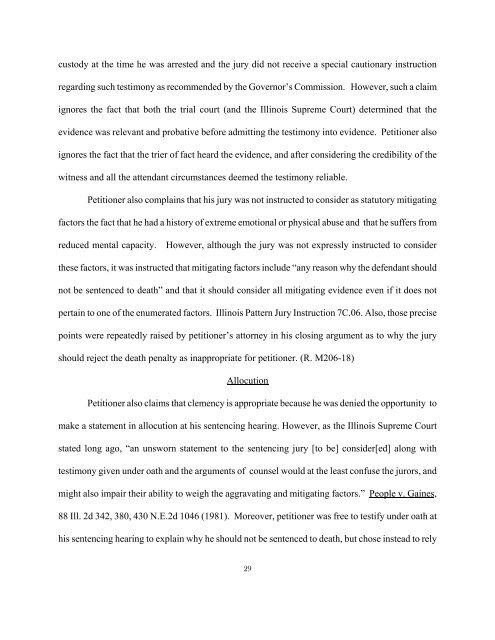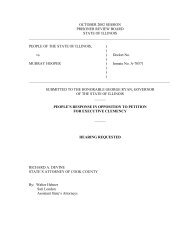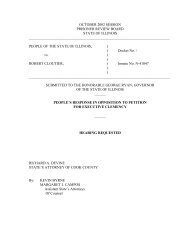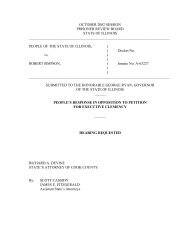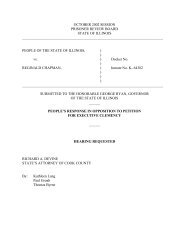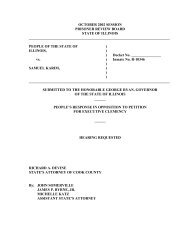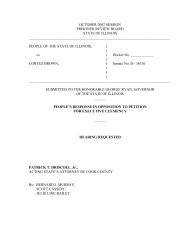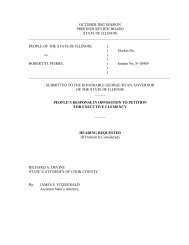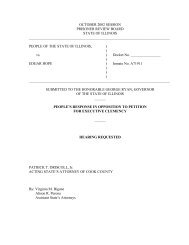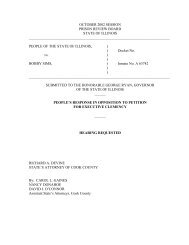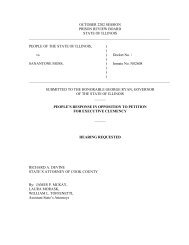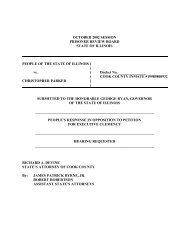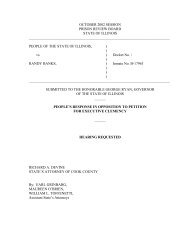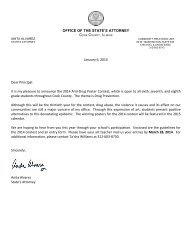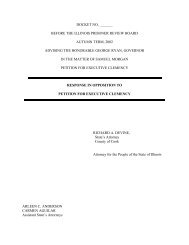Donald Armstrong - Cook County States Attorney's Office
Donald Armstrong - Cook County States Attorney's Office
Donald Armstrong - Cook County States Attorney's Office
Create successful ePaper yourself
Turn your PDF publications into a flip-book with our unique Google optimized e-Paper software.
custody at the time he was arrested and the jury did not receive a special cautionary instruction<br />
regarding such testimony as recommended by the Governor’s Commission. However, such a claim<br />
ignores the fact that both the trial court (and the Illinois Supreme Court) determined that the<br />
evidence was relevant and probative before admitting the testimony into evidence. Petitioner also<br />
ignores the fact that the trier of fact heard the evidence, and after considering the credibility of the<br />
witness and all the attendant circumstances deemed the testimony reliable.<br />
Petitioner also complains that his jury was not instructed to consider as statutory mitigating<br />
factors the fact that he had a history of extreme emotional or physical abuse and that he suffers from<br />
reduced mental capacity. However, although the jury was not expressly instructed to consider<br />
these factors, it was instructed that mitigating factors include “any reason why the defendant should<br />
not be sentenced to death” and that it should consider all mitigating evidence even if it does not<br />
pertain to one of the enumerated factors. Illinois Pattern Jury Instruction 7C.06. Also, those precise<br />
points were repeatedly raised by petitioner’s attorney in his closing argument as to why the jury<br />
should reject the death penalty as inappropriate for petitioner. (R. M206-18)<br />
Allocution<br />
Petitioner also claims that clemency is appropriate because he was denied the opportunity to<br />
make a statement in allocution at his sentencing hearing. However, as the Illinois Supreme Court<br />
stated long ago, “an unsworn statement to the sentencing jury [to be] consider[ed] along with<br />
testimony given under oath and the arguments of counsel would at the least confuse the jurors, and<br />
might also impair their ability to weigh the aggravating and mitigating factors.” People v. Gaines,<br />
88 Ill. 2d 342, 380, 430 N.E.2d 1046 (1981). Moreover, petitioner was free to testify under oath at<br />
his sentencing hearing to explain why he should not be sentenced to death, but chose instead to rely<br />
29


